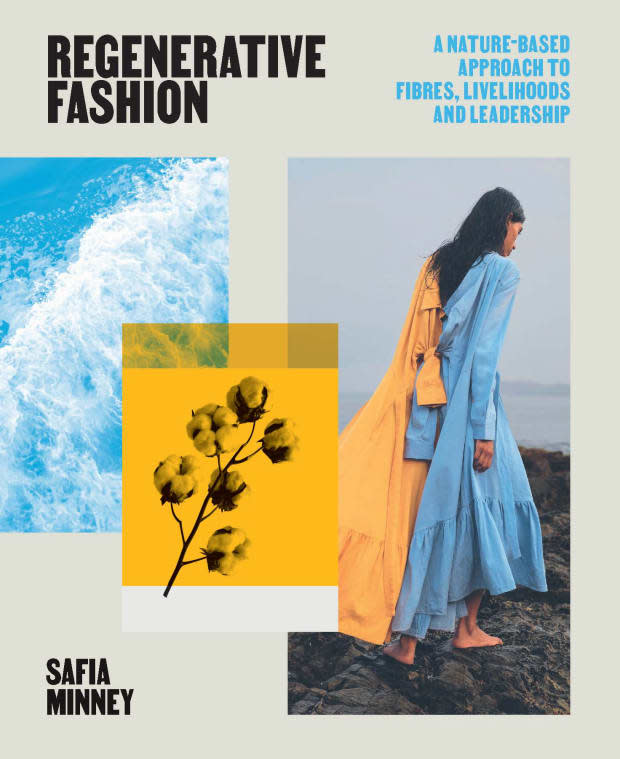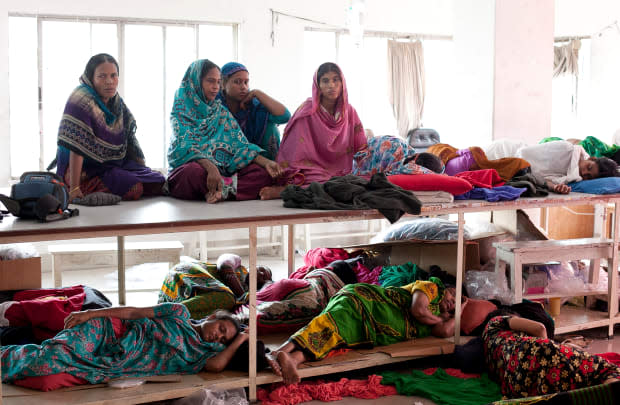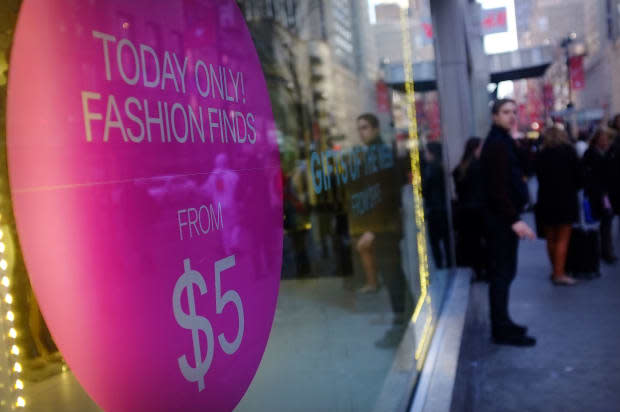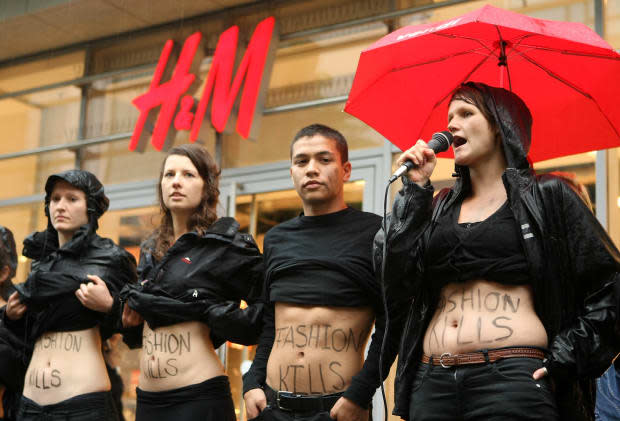Why a Former CEO Doesn't Want You to Lose Hope in Fashion
In her latest book, Safia Minney makes a case for regenerative systems that leave some of the supply chain's most horrific attributes behind.
"Standing on the edge of the sixth mass extinction, fashion might seem a small player in the emergency," Safia Minney wrote in the opening pages of her latest book, "Regenerative Fashion." But, she goes on to argue that it's anything but small.
"We can put nature and people central to creating beautiful product. What my book is trying to do is show that we can redesign the fashion industry," she tells Fashionista, "that these solutions already exist and that it's really now up to us to learn what the solutions are to start."
The British social entrepreneur and writer has spent decades committed to ethical change in fashion. She founded the Fair Trade brand People Tree in the '90s and served as its CEO for over two decades. In 2022, she launched grassroots campaign Fashion Declares, which aims to mobilize the industry on issues relating to the climate, ecological and social crises.
In "Regenerative Fashion," Minney takes on the mammoth task of breaking down the complexities of today's fashion ecosystem. She highlights the implications of its waste, the toll on biodiversity, the human cost of it all. She teases apart why certain fabrics, like wool, may be better than their synthetic alternatives. Most importantly, she emphasizes the hope and power consumers hold to shape a better future, and proposes regenerative fashion as a path forward.

Regenerative fashion is a multi-pronged approach to finding and implementing circular solutions to problems that have historically led fashion to extract natural resources from the environment, rather than give back to it. It's a practice inspired by regenerative agriculture, and to Minney, it presents a solution to everything from pollution to poor working conditions. It means mapping out the supply chain, building better relationships with farmers, introducing legislation that ensures accountability — things that allow for more transparency throughout the process and uphold ethical practices.
Despite the role fashion has played in environmental destruction, there are plenty of people "who passionately care about changing the industry and changing the way we think about workers and the supply chain," she says. "We can't not have hope."
Garment workers are still heavily exploited
Fashion is the fourth biggest manufacturing industry. Behind the massive quantities produced are actual people sewing, cutting and packaging your clothes. And those people are especially vulnerable to mistreatment and exploitation.
"Because [fashion manufacturing] is accessible to low-income countries, it can generate employment opportunities and is often described as 'an engine for global development,'" Minney wrote in the book. "Yet modern slavery, trafficking, sexual harassment and wage theft are endemic."
That has only exacerbated in recent years due to the Covid-19 crisis, which saw brands cancel massive orders, many of which had already been created and even shipped but would go unpaid. More recently, high inflation and economic uncertainty have also trickled into deferred orders and conditions "worse than in the pandemic" in places like Bangladesh, the world's third-largest apparel producer.

Photo: Allison Joyce/Getty Images
The human cost of the fashion industry goes beyond the assembly line: It also affects farmers and their soil, the environments where people live. It implicates people who aren't even a part of the chain.
"Farming fibres regeneratively, alongside crops and livestock, protects the land from contamination by synthetic pesticides and insecticides and actively works to improve soil health, habitats and ecosystems, promoting biodiversity and resilience," Minney wrote.
Even donating clothes — seen as a more noble way to get rid of used garments — comes at the expense of others, particularly along colonial lines.
"When second-hand clothes started flooding into Ghana in the 1960s, people assumed they came from dead foreigners, since excess was not an indigenous concept," OR Foundation founder Liz Ricketts told Minney in the book. "Colonial power dynamics persist in many ways across the second-hand economy."
The way we think about pricing has to change
The fashion industry is currently "one of absurdity," London fashion professor Dilys Williams said in "Regenerative Fashion."
To build its wealth, it has created inherent "sacrifice zones" — areas made to be disposable in the interest of economic gain. For example, companies increase profit margins by underpaying garment workers and allowing for poor working conditions. That's what lead to catastrophes like the 2013 Rana Plaza Collapse that killed thousands.

Photo: Spencer Platt/Getty Images
"Capitalism is a broken concept," Minney wrote. "It promotes endless growth, but ignores the fact that natural resources to support it are finite."
Making changes — like setting pricing to reflect the cost on nature, expanding the slate of stakeholders, having uncomfortable conversations and corporate activism — contribute to longevity.
Though we may not see an end to capitalism anytime soon, Minney is hopeful, thanks to the work of activists and advocates within the industry. "There's some really exciting legislation coming through in terms of modern slavery," she tells Fashionista. "I think the Remake Report also gives some really clear indications as to what kind of transparency civil society is now expecting. There are lots of different levers pushing for change."
There is a path forward
"Fashion is a unique human construct and, as such, has a powerful role in promoting awareness of equality, sustainable living and solidarity in the face of climate breakdown," Minney wrote in the book. "Regenerative fashion brings us together through close working partnerships... and promoting a decolonialized trading system."
"Regenerative Fashion" is a powerful read because it reminds us of the practices — largely established by Indigenous cultures — that have existed for a long time and support harmony between us and our ecosystems, and that it's vital to return to them and step away from the hyper-capitalist, consumption-driven path we've been on. We have the power and ability to rethink how fashion operates and potentially undo some of the damage we've caused.
"The next evolution of fashion design," she wrote, "will be triggered by talented individuals reaching even greater heights of creativity and systems thinking, while reducing their ecological footprint and increasing their social impact. Anything less will go out of fashion for good."

Photo: Adam Berry/Getty Images
Regenerative fashion, she argued, is important not only for the health of the planet, but for that of all people, especially in the Global South.
"It's not just a matter of reining in the worst excesses," Minney wrote. "Fashion must have a future in which it creates a positive impact, both socially and ecologically."
"Regenerative Fashion: A Nature-Based Approach to Fibres, Livelihoods, and Leadership" by Safia Minney, $40, available here.
Please note: Occasionally, we use affiliate links on our site. This in no way affects our editorial decision-making.
Never miss the latest fashion industry news. Sign up for the Fashionista daily newsletter.

 Yahoo Movies
Yahoo Movies 